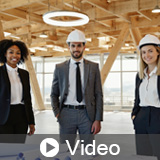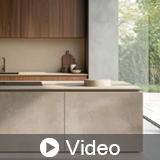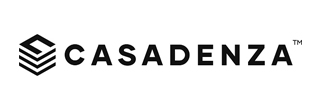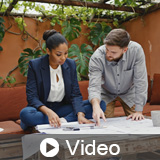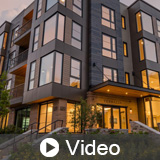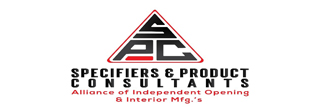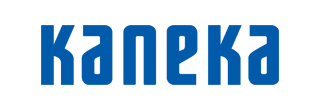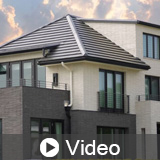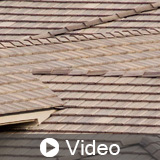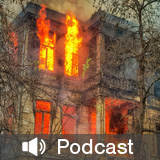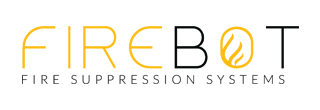Mass timber is revolutionizing modern architecture, offering design professionals an unprecedented opportunity to create buildings that actively fight climate change while delivering superior occupant experiences. This cutting-edge construction method is transforming skylines from Portland to Stockholm, enabling architects to build taller, faster, and more sustainably than ever before.
$45.00 |
|
Thin stone veneers are revolutionizing architectural design by offering lightweight, flexible, and sustainable alternatives to traditional stone applications. We will take an in-depth look at ultra-thin stone veneer technology, its composition, manufacturing process, performance benefits, and broad range of applications. Design professionals will gain insight into specifying these unconventional materials for commercial and residential projects, ensuring compliance with fire ratings, sustainability considerations, and best practices for installation.
FREE |
|
We're facing an unprecedented crisis of connection in our communities. While we've become more digitally linked than ever before, genuine human connection is becoming increasingly rare. As a design professional, you hold extraordinary power to address this crisis through the spaces you create. Your buildings don't just house activities; they shape the social patterns that determine whether communities thrive or struggle.
$35.00 |
|
The year is 1414. Europe teeters on the brink of collapse—cities drowning in their own filth, forests stripped bare, ancient wisdom crumbling into superstition. In a forgotten Swiss monastery, a Vatican spy named Poggio Bracciolini makes a discovery that will shake the foundations of civilization. Hidden beneath centuries of dust lies the ultimate treasure: a manual for architectural mastery, written by written by Marcus Vitruvius Pollio, a Roman engineer whose principles would change the world. But this is no ordinary manuscript.
$35.00 |
|
Welcome to Earth's most terrifying reality show - and you're already starring in it. Right now, as you read this, ancient permafrost is melting and releasing methane bombs that have been sleeping for millennia. Ice sheets the size of countries are collapsing into the ocean. Entire species are vanishing before we even discover them. We've pushed the planet past multiple tipping points, and the Earth system is now hunting us back with unprecedented heat waves, super storms, and ecological collapse. This isn't science fiction - this is your life.
$35.00 |
|
What if the smallest intervention could transform an entire neighborhood? What if the spaces we design carry hidden psychological and cultural messages that either empower or exclude? This course takes you beyond traditional sustainability metrics to explore five theories that are reshaping how we think about responsible design. This course exposes uncomfortable truths—how seemingly innocent design choices may perpetuate inequality, exclude entire communities, and maintain systems of oppression that most design professionals may not recognize.
$35.00 |
|
Welcome to an exploration of how space becomes a living, breathing performer in the grand theater of human experience. Spatial dramaturgy represents the fascinating intersection where architecture transcends mere shelter to become narrative, where interior design moves beyond aesthetics to choreograph human emotion and behavior. In this journey, we'll discover how the greatest architects and designers have wielded space as a storytelling medium, creating environments that don't just house activities but actively participate in shaping human experience.
$35.00 |
|
The adoption of smart access control systems is transforming multi-family, multi-tenant, and commercial properties driving significant growth in the smart lock industry worldwide. This course explores how smart locks go beyond traditional mechanical functions to offer seamless, technology-driven security and access solutions. Attendees will gain insight into the latest advancements, key features, and industry trends shaping smart lock technology.
FREE |
|
This one-hour course focuses on the applications of sealant products formulated with Silyl-Terminated Polyether (SMP), also known as Silane Modified Polymer (MS Polymer). We will explore applications for highly durable, multipurpose and primerless sealants and the advantages over traditional acrylics, silicones, polyurethanes and rubber/synthetics. In addition to sealing joints, gaps and penetrations, we will discover repair of household materials and adhesion to difficult substrate materials.
FREE |
|
In this one hour course, we will take an in-depth look at the sustainability and energy efficient attributes of concrete tile roofing, including the near zero-waste manufacturing process, life cycle cost and performance versus temporary asphalt shingle roofing as well as the installation processes which enhances the inherent thermal mass attributes of concrete tile roofing.
FREE |
|
Discover a radical new lens on design in this course on material vitalism—an approach that redefines materials not as passive stuff, but as active participants in shaping architecture. We'll explore how matter itself can tell stories, shape experiences, and even guide design choices, from the weathered warmth of timber to the self-organizing intelligence of natural systems. Blending philosophy, material science, and real-world examples, this course offers not just theory, but a practical, sustainable framework for thinking with materials.
$35.00 |
|
What if buildings weren’t just structures—but vessels for memory, imagination, and the ghosts of what might have been? Join us as we explore how architecture holds onto dreams and disappointments, carrying the echoes of modernism’s bold promises of infinite progress. We'll look at sustainable design not just as a technical solution, but as a haunted practice—one shaped by the failures of the past and the urgent demands of the future. Step into spaces where time bends: where ancient materials meet digital futures, where ruins don’t just decay—they teach us resilience.
$35.00 |
|
Ready to revolutionize your design practice by partnering with the most powerful force in the universe? This dynamic course reveals how entropy—the same principle that governs stars, storms, and ecosystems—has been quietly shaping architecture's most beloved and resilient buildings for decades. Through engaging case studies of radical architects who embraced uncertainty, hands-on analysis of buildings that actually improve with age, and practical strategies for creating spaces that dance with time rather than resist it, you'll master the art of entropy-conscious design.
$35.00 |
|
In this one hour course, we will take an in-depth look at the sustainability and energy efficient attributes of concrete tile roofing, including the near zero-waste manufacturing process, life cycle cost and performance versus temporary asphalt shingle roofing as well as the installation processes which enhances the inherent thermal mass attributes of concrete tile roofing.
FREE |
|
Ever wonder why that fluorescent-lit hallway gives you the creeps? Turns out, millions of people on the internet figured it out. When an anonymous internet post about endless yellow office spaces went viral, it accidentally created one of the largest public engagements with architectural psychology. This course explores how The Backrooms phenomenon introduced liminal space theory to the masses and what it means for creating better buildings.
$35.00 |
|
Ready to design spaces that transform communities? This course reveals how the world's most successful gathering places—from Parisian cafés to modern co-working hubs—create the social magic that turns strangers into neighbors and neighborhoods into thriving communities. You'll discover the hidden design principles behind spaces people can't resist visiting, master sustainable strategies that reduce operating costs while boosting occupant wellbeing and learn implementation tactics that ensure your third place projects actually serve their communities long-term.
$35.00 |
|
Are you tired of sustainability webinars and workshops that ignore the elephant in the room? This course confronts environmental reality without corporate greenwashing or cheerful platitudes. We examine climate change, mass extinction, toxic building materials, and institutional failure through the lens of philosophical nihilism—not to surrender to despair, but to clear away false hope and find authentic pathways forward.
$35.00 |
|
What do a 2,400-year-old philosopher and today’s toughest client meetings have in common? More than you think. In this course, you’ll discover how ancient Greek Cynic philosophy can help you defuse conflict, win over clients, and keep your sustainable design goals on track. Packed with real-world case studies and practical tools, this course shows architects, engineers, and contractors how to navigate high-stakes conversations about eco-friendly materials, resolve team tensions when budgets clash with sustainability, and build long-term client trust through radical honesty and clarity.
$35.00 |
|
In a world of escalating environmental crises and competing priorities, where does a design professional find the clarity and courage to champion truly sustainable solutions? The answer might be 2,300 years old. This course bridges ancient Stoic philosophy with contemporary sustainable design practice, offering a powerful ethical framework for navigating the complex challenges of our profession.
$35.00 |
|
AWARDS GBCI CREDIT. NO AIA CREDIT. This course explores the intersection of safety and sustainability in modern fire suppression systems, with a focus on kitchen environments—the leading setting for residential fires. Participants will identify the most common causes of kitchen fires and assess how cutting-edge suppression technologies are mitigating these risks.
FREE |

